Looking at the Hong Kong Movement from the Historical Context (2): Political Changes in China and Hong Kong
2. Political changes in China and Hong Kong
If the colonial system is the macro-context of Hong Kong society, then the "political changes in China and Hong Kong" are undoubtedly the main background of social conflicts in recent years. In this section, we review the changes in the central government's thinking on Hong Kong governance after the transfer of sovereignty, changes in Hong Kong's political reform and economic exchange policies, and their impact on the social life and political identity of ordinary citizens.
2.1 (1997 – 2003): "Article 23 Legislation" and Central Economic Concession
The violent suppression of the "1989 Democracy Movement" undoubtedly triggered Hong Kong people's fear of the CCP's authoritarian rule. However, in the early days of the handover of sovereignty, the central government did not intervene very much in Hong Kong society, which gradually strengthened Hong Kong people's confidence in one country, two systems. However, the "Article 23 Legislation" around 2003 made Hong Kong society distrust the central government's rule for the first time. Article 23 of the Basic Law stipulates that Hong Kong shall enact laws on its own to prohibit any acts that are detrimental to the country's national sovereignty, territorial integrity, unity and national security, and to safeguard the national security of the People's Republic of China. ”, which triggered the first massive mass movement after the reunification, which eventually led to the withdrawal of the law. The establishment failed in the subsequent elections, and there were also a series of rallies and large-scale demonstrations in society to demand "the implementation of universal suffrage for the Chief Executive and the Legislative Council as soon as possible". However, in 2004, the Standing Committee of the National People's Congress vetoed the proposal to reform the political system, maintaining the current state of affairs. electoral system [1] .
In the same year as Article 23 was controversial, Hong Kong's economy was at a low ebb due to the severe acute respiratory syndrome (SARS), and the central government adopted a "give-and-go" strategy for Hong Kong. In 2003, the mainland and Hong Kong governments signed the " Mainland and Hong Kong Closer Economic Partnership Arrangement " (CEPA), which provides zero-tariff concessions for Hong Kong products, opens the mainland service industry market to Hong Kong businessmen, and opens up " free travel " to Stimulate the retail and catering industries in Hong Kong. At that time, these economic measures quickly revitalized the economy at that time, increased employment opportunities, and strengthened exchanges between China and Hong Kong, but they also had a far-reaching impact on Hong Kong society, laying the foreshadowing of future conflicts between China and Hong Kong.
2.2 (2003 – 2008): Increased exchanges between China and Hong Kong, and increased Chinese identity
The "July 1st Parade" in 2003 caused the central government to change its thinking on Hong Kong governance, and began to openly express its demands on the SAR government, and to intervene in Hong Kong society and politics to a greater extent and more comprehensively . In terms of political reform, in 2004, the Standing Committee of the National People's Congress took the initiative to interpret the law, increasing the procedure for revising the method of forming the Chief Executive and the Legislative Council to five steps. Submit the report and get the decision of the Standing Committee of the National People's Congress to approve the revision. In terms of economic policy, the central government's concessions continued to help Hong Kong weather the financial turmoil and gradually recovered Hong Kong society's confidence in the central government.
The Wenchuan Earthquake in May 2008 made the Hong Kong community pay attention to the development of the mainland. Over 80% of the citizens were satisfied with the disaster relief performance of the central government, which increased their trust in the central government. Donations from all walks of life that year broke Hong Kong's historical record. The "Beijing Olympics" in August 2008 made Hong Kong citizens feel proud of their country in China's positive international image, pushing the identity of "Chinese" to the highest level. However, as the promise of universal suffrage has not been fulfilled, and negative news in China continues to emerge [2] , 2008 was a watershed for various polling figures. It also began to decline after peaking in 2008.

2.3 (2008-2014): The period of worsening conflicts between China and Hong Kong
During this period, politically, the central government did not give in an inch in political reform, reaffirmed "full governance", and promoted infrastructure and educational guidelines for the integration of China and Hong Kong. Economically, Hong Kong has gradually been included in the blueprint for China's national development. The government has actively promoted infrastructure construction for the integration of China and Hong Kong, promoted patriotic national education, and strengthened control over Hong Kong society. At the same time, the contradictions between China and Hong Kong continue to accumulate in society, and there are a lot of frictions at the level of daily life.
In 2009, the "Guangzhou-Shenzhen-Hong Kong Express Rail Link" and the "Hong Kong-Zhuhai-Macao Bridge", which had been negotiated for a long time by the Hong Kong government and the central government, entered into discussions on specific construction plans and funding. Zhuhai and Macau. In 2012, the Chief Executive formally proposed the curriculum guidelines, requiring "moral and national education" to become a compulsory subject in primary and secondary schools. These two policies under the guidance of the central government have far-reaching effects. The integrated infrastructure of China and Hong Kong has brought about the "anti-high-speed rail movement" against the "Big White Elephant Project", and the national education has brought about the "anti-national religion" movement of the youth, which eventually led to the curriculum guide being rejected. shelved.
At the level of communication in daily life, the conflict between China and Hong Kong emerged in the form of ethnic conflict after 2010. In the past, institutional discussions generally believed that the exchanges between China and Hong Kong brought about by "free travel" and "CEPA" brought opportunities for the economic development of Hong Kong people. However, due to the Hong Kong government's policy of "big market, small government", the weak welfare system has brought policy-based resource shortages, and the increase in population exchanges between China and Hong Kong has resulted in many social problems . For example, the number of mainland tourists visiting Hong Kong has increased sharply; a large number of "parallel buyers" are rushing to buy milk powder and other daily necessities in Hong Kong [3] , bringing about problems such as traffic congestion, shortage of goods, and rising prices, and also causing life inconvenience to some communities [ 3] 4] . The policy allows children born in Hong Kong to parents who are not Hong Kong residents (commonly known as " double non- ") to obtain permanent residency in Hong Kong by means of birth travel, which exacerbates the shortage of hospital beds and places, and is used by the still budding local faction to promote The idea of xenophobia triggers the society to point the finger at the mainlanders.
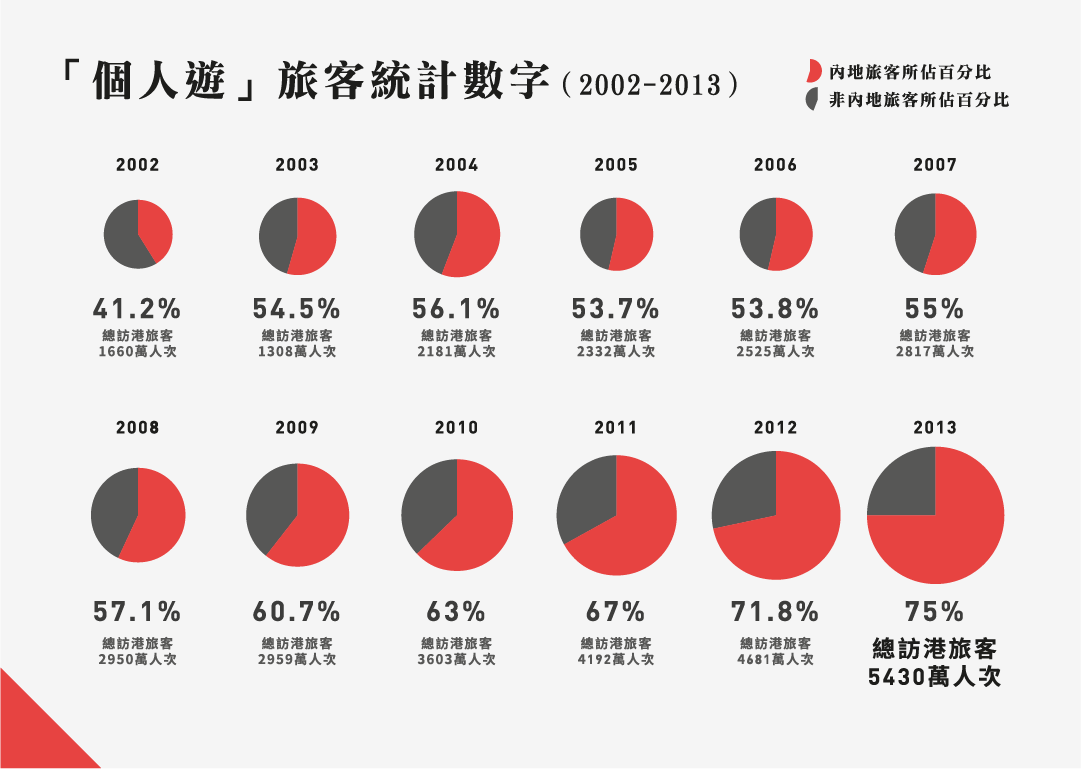
From 2008 to 2014, the interweaving of China-Hong Kong integration policies, political reforms, and social issues caused dissatisfaction with the government to brew in society. Young people's "Hong Kong" identity continues to rise, while their "Chinese" identity continues to decline [5] ; the number of people participating in large-scale demonstrations has increased significantly. In the report of the 18th National Congress of the Communist Party of China in 2012, the central government for the first time added "maintaining national sovereignty, security and development interests" to the principles of governing Hong Kong and Macao affairs, emphasizing the red line of "one country, two systems". In 2014, the State Council proposed a white paper titled "The Practice of "One Country, Two Systems" in the Hong Kong Special Administrative Region, emphasizing that Hong Kong's "right to self-governance" is conferred by the central government and that the central government has "comprehensive governance rights", and it strengthens Beijing's "institutionalization" of the use of power over Hong Kong affairs. " [6] . In the same year, the Standing Committee of the National People's Congress passed the "831 Decision" [7] on the election of the Chief Executive of Hong Kong and the method for the formation of the Legislative Council. The series of political advancements by the central government made citizens feel hopeless about the implementation of universal suffrage in Hong Kong. Under the accumulation of various contradictions, the "Umbrella Movement" finally broke out in September 2014.
2.4 (2014 – 2019): The central government has accelerated its tightening of control over Hong Kong
Compared with the past three periods, after the outbreak of social movements such as the "anti-national education" and the "umbrella movement" , the central government accelerated the implementation of the policy of integration between China and Hong Kong, and vigorously tightened social control . China-Hong Kong Economic Integration Policy. On the other hand, the central government's political interference in Hong Kong is gradually pressing. In 2015, mainland law enforcement agencies abducted people across the border in the "Causeway Bay Bookstore Incident" , the "People's Congress Interpretation" in 2016 canceled the qualifications of members, and the "People's Congress Decision" in 2018 After passing the co-location inspection , a series of incidents caused Hong Kong society's confidence in "One Country, Two Systems" to drop to the bottom.
In 2015, the central government formally proposed the concept of "Guangdong-Hong Kong-Macao Greater Bay Area" in the "One Belt, One Road" policy document, incorporating Hong Kong into the strategic blueprint for national economic development, and establishing Hong Kong's advantages in helping China's economic development with its institutional policies, fund-raising convenience and other advantages. division of labor. After the "Umbrella Movement", discussions on "Hong Kong independence" increased, touching the central government's most sensitive "national security" red line. The University of Hong Kong's publication "Xue Yuan" was strongly criticized by Leung Chun-ying and pro-Beijing media for this. In 2018, the Hong Kong government issued an order under the Societies Ordinance to officially list the " Hong Kong National Party " , which advocates Hong Kong independence, as an illegal organization and prohibit its operation. There must be zero tolerance for 'Hong Kong independence'." While suppressing Hong Kong's independence, the government actively promoted the National Anthem Law and "Public Education [9] ".
In the fourth period, the central government repeatedly used the institutional decision-making power in the Basic Law to influence Hong Kong politics. After the swearing -in of Legislative Council members in 2016, the Standing Committee of the National People's Congress interprets the Basic Law [10] , causing many local and self-determined elected legislators to lose their membership, as well as political platforms and resources within the system. In 2018, the government proposed to delineate a "Mainland Port Area" within the West Kowloon Station of the High Speed Rail to allow mainland personnel to perform duties in Hong Kong. Basic Law.
While the government has made a high profile of restricting Hong Kong's autonomy and tightening control, civil society has fallen into a low ebb after the "Umbrella Movement". Although there have been sporadic demonstrations, large-scale mass movements have not been formed. In 2016, the local faction launched the " Mong Kok riot [11] ", and several demonstrators were charged with "riot crimes". Among them, Lu Jianmin was sentenced to 7 years in prison, the heaviest sentence for rioting since the opening of Hong Kong's port. In the past few years, the "local trend of thought" has emerged in society and has considerable influence as a political position. In 2016, the "localists" were included in the polls for the first time. Although they were not as many as those supported by moderate democrats, citizens who claimed to be localists accounted for 8.4% of the society, and among young people aged 18-29, nearly 30%. In the 2016 elections, all candidates who advocated indigenous, self-determination or independence collected nearly 390,000 votes and won six of the 35 Legislative Council seats. A poll in the same year also found that 17.4% of the supporters of "Hong Kong independence" were opposed to it, and 57.6% were opposed. Among the younger generation, nearly 40% supported, more than opposed. However, following the government's crackdown on independence thinking in 2016, support for independence dropped significantly in 2017.
2.5 Caption: Changes after the transfer of sovereignty
In this part, the number of participants in "One Country, Two Systems", "Hong Kong people's identity", "June 4 Rally" and "July 1st March" are used as indicators to present the "anti-amendment" movement from the return in 1997 to 2019. Social changes in Hong Kong before. The trends of these changes are roughly in line with the above-mentioned changes in the political framework of China and Hong Kong and major social events.
Before the transfer of sovereignty to the implementation of the "Article 23 Legislation" in 2003, Hong Kong citizens' confidence in the central government and their "Chinese" identity gradually increased. The "Article 23 Legislation" in 2003 made Hong Kong society distrust the central government's rule for the first time. However, before and after the Beijing Olympics from 2004 to 2008, Hong Kong citizens' confidence in "One Country, Two Systems" and their identification with "Chinese" have steadily recovered.
From 2008 to 2014, it was a period of "deterioration of the conflict between China and Hong Kong". The central government refused to give an inch on the reform of the political system. The conflict between China and Hong Kong broke out at the social level. Citizens' confidence in "one country, two systems" declined year by year. The number of participants in the parade has increased year by year. At the same time, citizens' identification with "Hong Kong people" continued to rise, while that of "Chinese" continued to decline. In 2014, 18-25-year-old citizens' "Hong Kong people" identification was as high as 75.8%; "Chinese" identification was as low as 6.5% [12] .
After the "Umbrella Movement" in 2014 and before the "Anti-Amendment Bill" movement in 2019, the central government accelerated its tightening of control over Hong Kong, and the general public's identification with "Hong Kong people" continued to rise, and the identification with "Chinese" continued to rise. decline. However, the social movement was at a low ebb, the atmosphere of "useless marches" permeated the society, and the number of participants in large gatherings dropped significantly.
Photo 1: Hong Kong people's confidence in "One Country, Two Systems" and the Central Government. (Taken from: Public Opinion Research Project of the University of Hong Kong .)
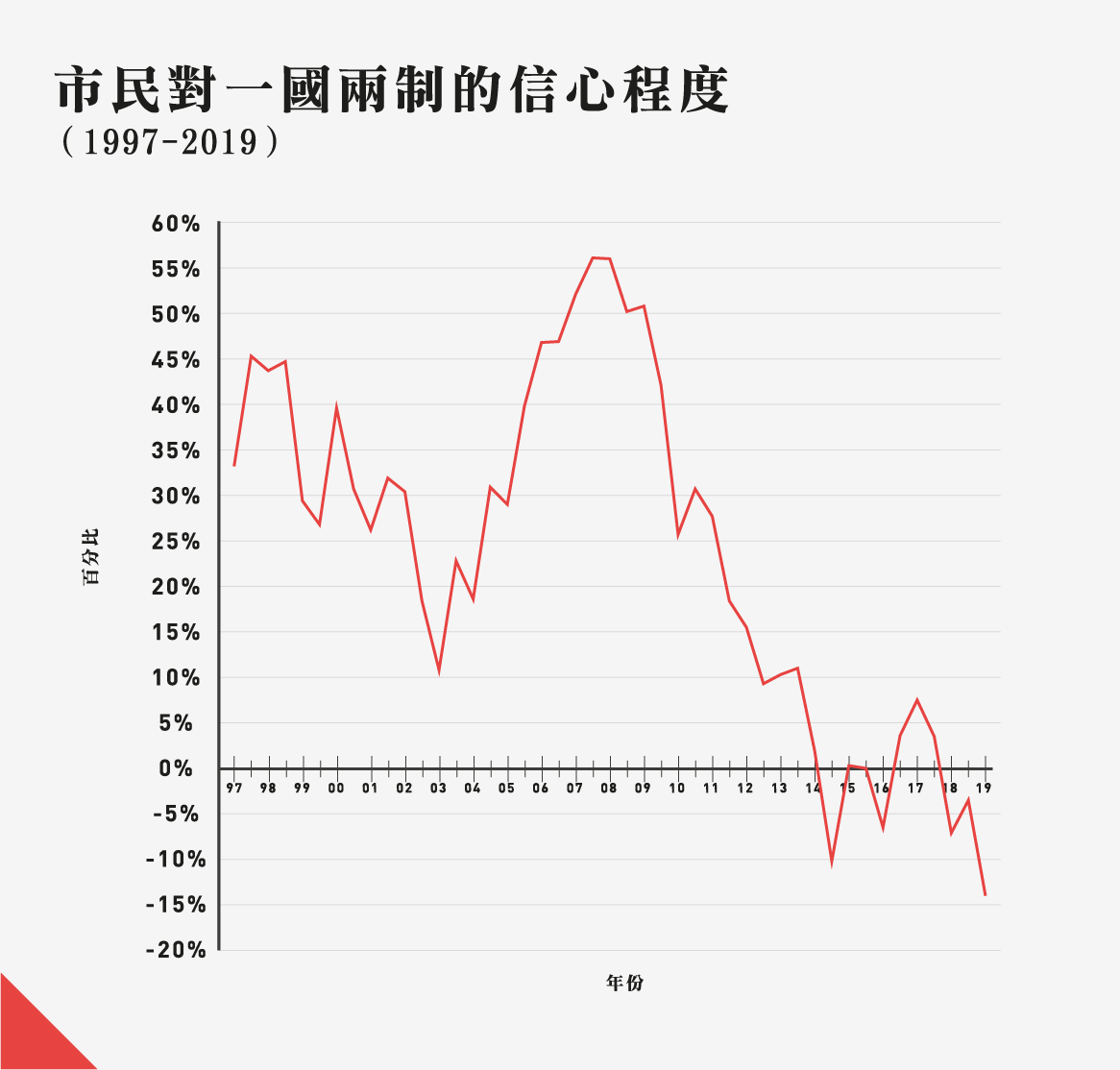
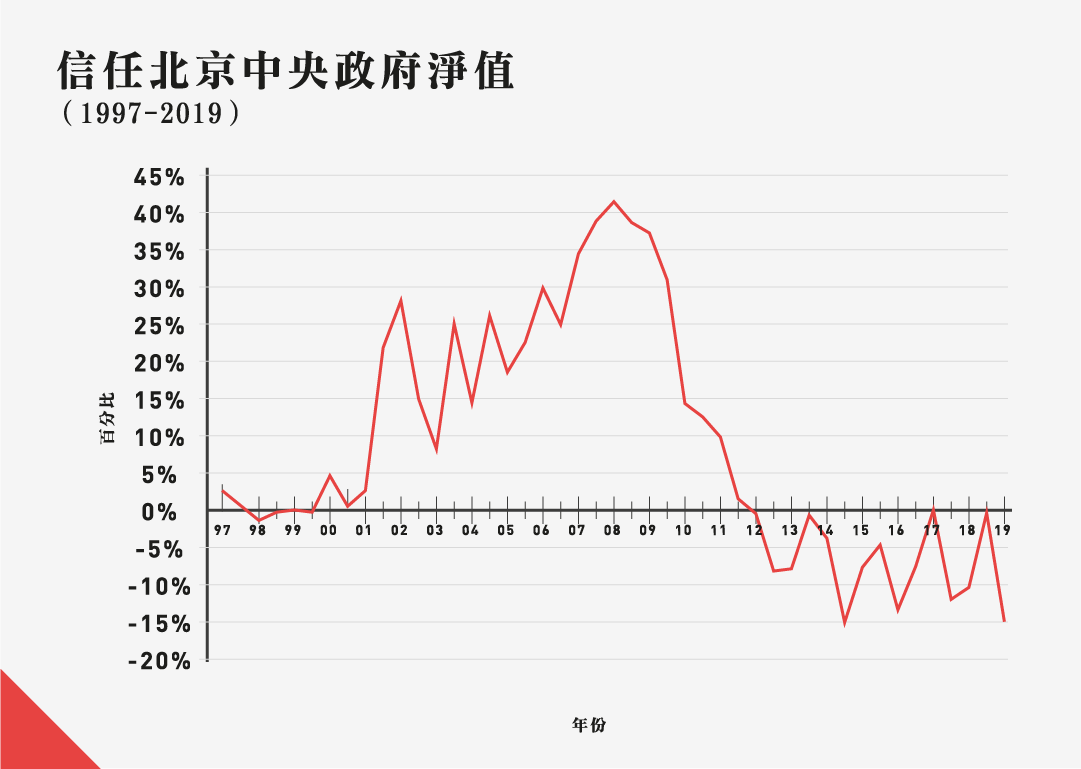
Photo 2: Identity of Hong Kong citizens. (Taken from: "Hong Kong people" identification data ; "Chinese" identification data from the Public Opinion Research Project of the University of Hong Kong.)
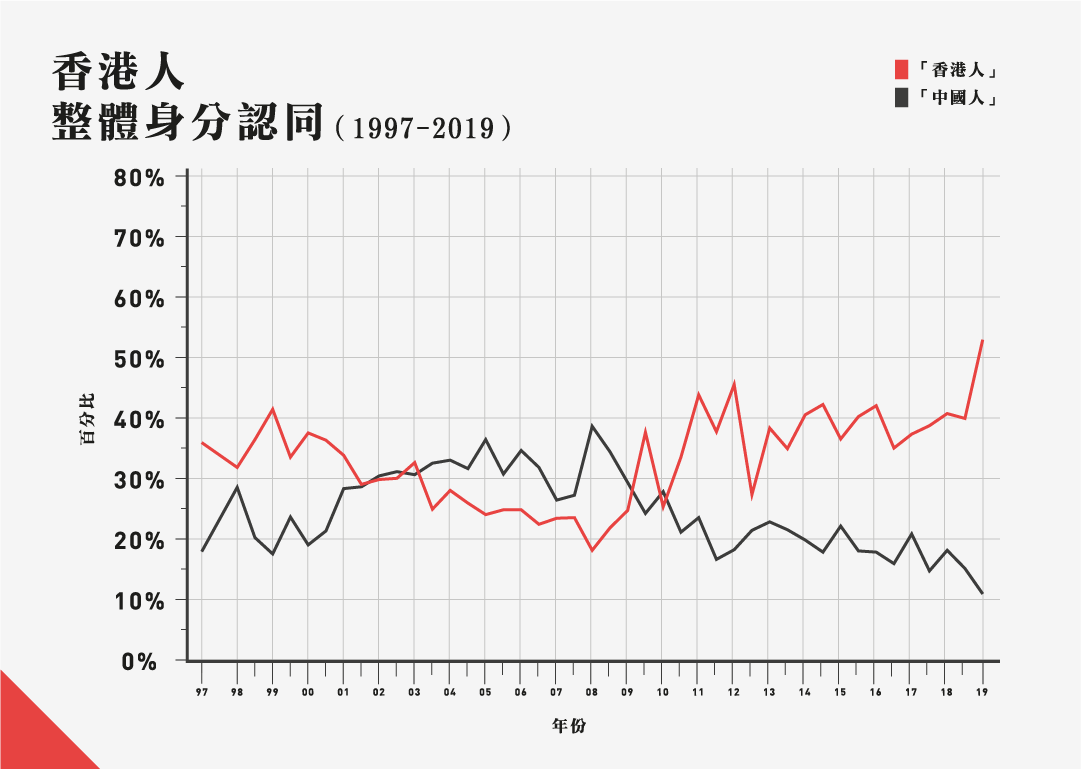
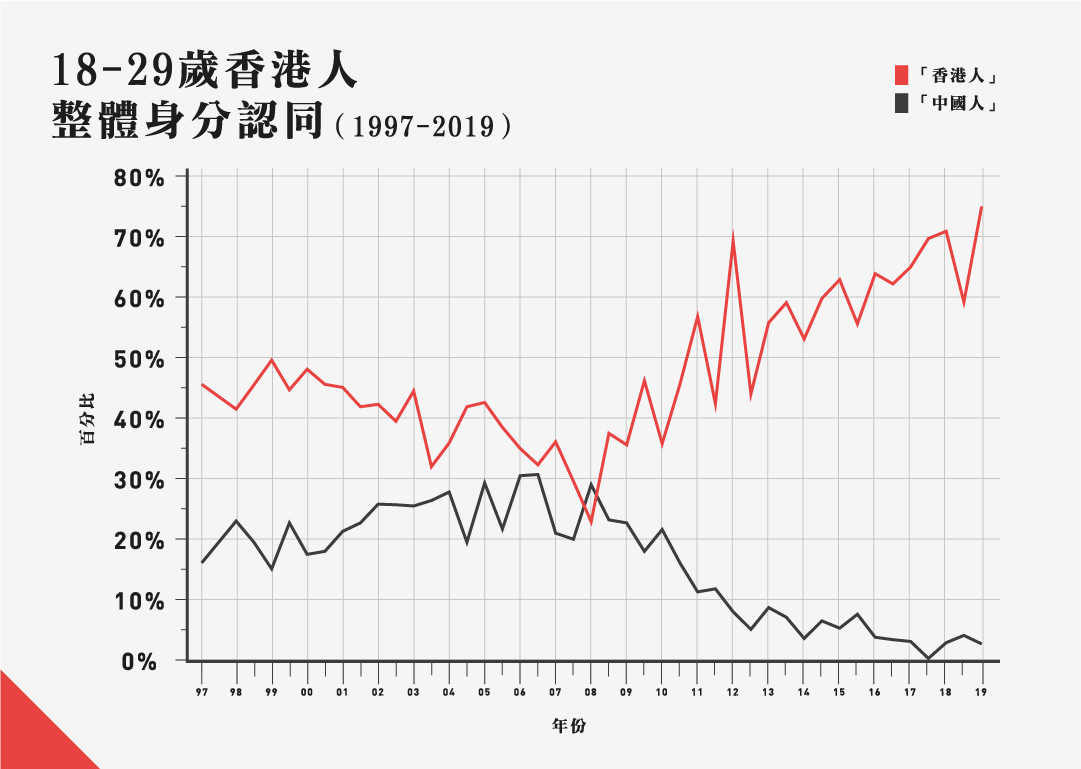
Photo 3: The number of participants in the " June 4th Gala " and " July 1st Parade " over the years. (The data is taken from: the figures published by the organizers of the parade in the media over the years and the police figures.)
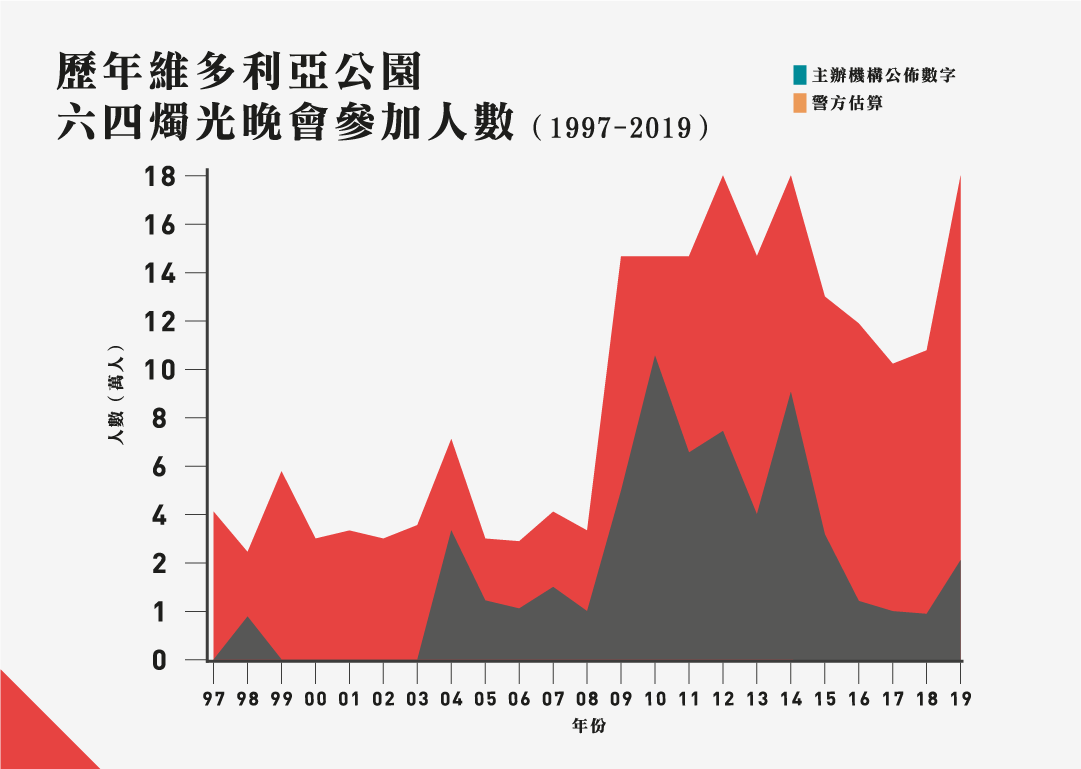
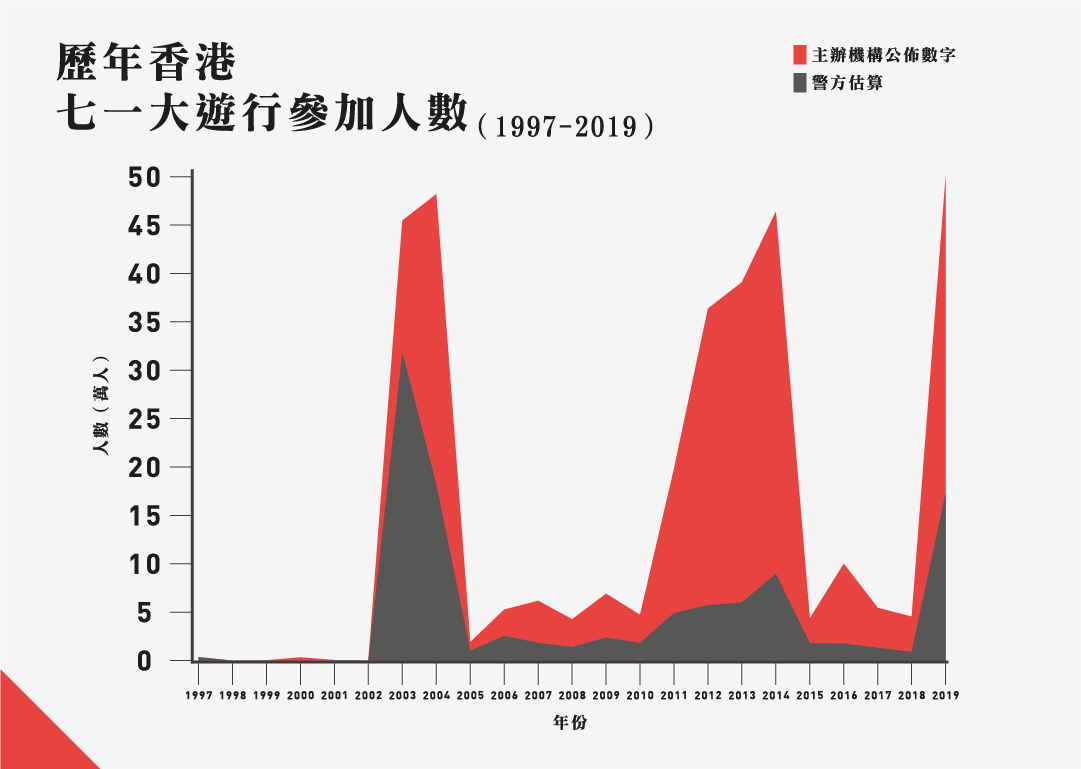
[1] On April 26, 2004, the Standing Committee of the National People's Congress decided that universal suffrage would not be implemented in the election of the third chief executive in 2007, and that in the election of the fourth term of the Legislative Council in 2008, the proportion of members from functional constituencies and direct elections by districts would be 50/50. It remains unchanged, and the voting procedures for bills in the Legislative Council will remain the same.
[2] For example: the melamine "poisoned milk powder" incident, the "tofu dregs project" revealed by the Wenchuan earthquake, and the whereabouts of donations to the earthquake are unknown.
[3] Some mainlanders have lost confidence in the quality of necessities such as baby milk powder. Products sold in Hong Kong have become popular, and the cross-border "parallel import" market is booming. Parallel importers are parallel importers who buy products in Hong Kong and bring them back to Shenzhen and other places to sell to earn the price difference.
[4] It is especially serious in places close to the border, such as Fanling and Sheung Shui.
[5] Refer to the data of "Hong Kong people" and "Chinese" identity from the Public Opinion Research Project of the University of Hong Kong in "Illustration: Changes after the Return of the People's Republic of China".
[6] For example, in the form of "People's Congress Interpretation of the Law", the method of election of the Chief Executive and the Legislative Council and the direction of political reform are established.
[7] It is established that the candidates for the Chief Executive in 2017 are selected by a nomination committee of 1,200 people; citizen nominations and political party nominations are not implemented, and the chief executive candidate must be supported by more than half of the members of the nomination committee to become candidates; candidates are limited to 2 to 3, and then let the voters vote first. In addition, half of the functional constituency seats were reserved for the 2016 Legislative Council election.
[8] Namely, the Hong Kong and Macao Affairs Office of the State Council, the Liaison Office of the Central People’s Government in Hong Kong, and the Office of the Commissioner of the Ministry of Foreign Affairs in the Hong Kong SAR
[9] That is to replace "Cantonese" with "Mandarin" to teach Chinese in primary and secondary schools
[10] Article 104 of the Basic Law states: "The Chief Executive, Principal Officials, Members of the Executive Council, Members of the Legislative Council, judges of courts at all levels and other judicial officers of the Hong Kong Special Administrative Region must take an oath in accordance with the law to support the Hong Kong Special Administrative Region of the People's Republic of China. The Basic Law of the Administrative Region, and allegiance to the Hong Kong Special Administrative Region of the People's Republic of China."
[11] The local faction calls it the "Fish Ball Revolution"
[12] Refer to the data of "Hong Kong people" and "Chinese" identity from the Public Opinion Research Project of the University of Hong Kong.
What Happened in Hong Kong is a writing project about Hong Kong and a struggle between memory and forgetting. We start serialization every night from June 9, 2021, to sort out the historical context of social movements in Hong Kong, as well as the development trajectory of the pro-democracy movement detonated by the draft amendment to the Fugitive Offenders Ordinance from the spring of 2019 to 2021. It is hoped that this writing attempt can cut a hole in the high stone wall that blocks communication, bring the possibility of dialogue, and make it a starting point for connection and resistance.
"What Happened in Hong Kong" Traditional e-book (PDF) download:
tinyurl.com/TC-WhatHappenedinHK
"What Happened in Hong Kong" Simplified eBook (PDF) Download:
tinyurl.com/SC-WhatHappenedinHK
Like my work? Don't forget to support and clap, let me know that you are with me on the road of creation. Keep this enthusiasm together!





- Author
- More